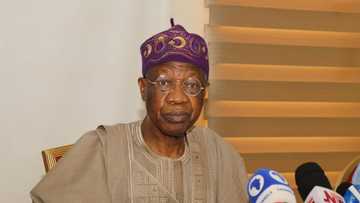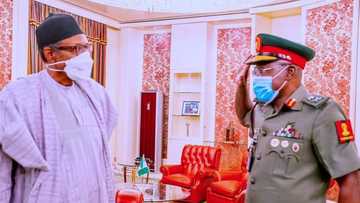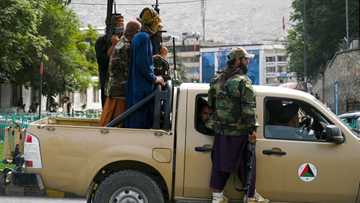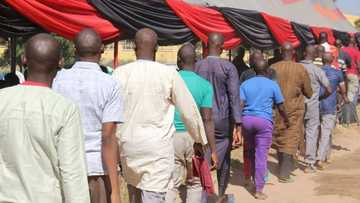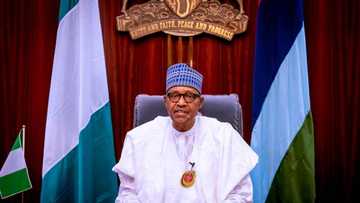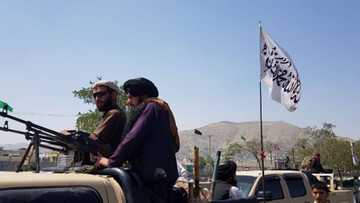Reno Omokri goofed, FG purchased Tucano jets at $423m, not $593m
Claim
PAY ATTENTION: Click “See First” under the “Following” tab to see Legit.ng News on your Facebook News Feed!
Former presidential aide, Reno Omokri, claimed the federal government used $593 million to purchase twelve Tucano fighter jets.
Verdict
It’s a lie! The federal government’s purchase of 12 Tucano jets from the United States in a solidified effort against Boko Haram terrorism and banditry did not come at the price of $593m.

Source: Instagram
Full story
A former presidential aide and UK-based Nigerian preacher, Reno Omokri, in a Facebook post on August 16, claimed that “Nigeria bought 12 Super Tucano jets from the US for $593 million.”
PAY ATTENTION: Install our latest app for Android, read best news on Nigeria’s #1 news app
Reno made this claim in the wake of the political crisis currently bedevilling Afghanistan, a mountainous landlocked country at the crossroads of Central and South Asia.
He feared the Tucano super jets obtained by Nigeria in the fight against insurgency and other sundry crimes may be hijacked if the federal government continues its romance with weapon-wielding terrorists in northeast Nigeria.
Omokri also warned against the rehabilitation of repentant terrorists under the program codenamed “Operation Safe Corridor,” arguing that Nigeria must “learn her lessons before it is too late.”
"Nigeria bought 12 Super Tucano jets from the US for $593 million. The Taliban got them for free by defeating the US and the Afghan government. With the way Buhari romances Boko Haram, I just pray Nigeria’s 12 Super Tucano jets will not become their property one day! Because what is happening in Nigeria today first happened in Afghanistan.
"The rehabilitation of so-called repentant Taliban by the US and Afghan government allowed them to act first as spies, then as enemies within, which was a chief causative factor in the rapid victory of the Taliban. May Nigeria learn her lessons before it is too late!" the Facebook post read.
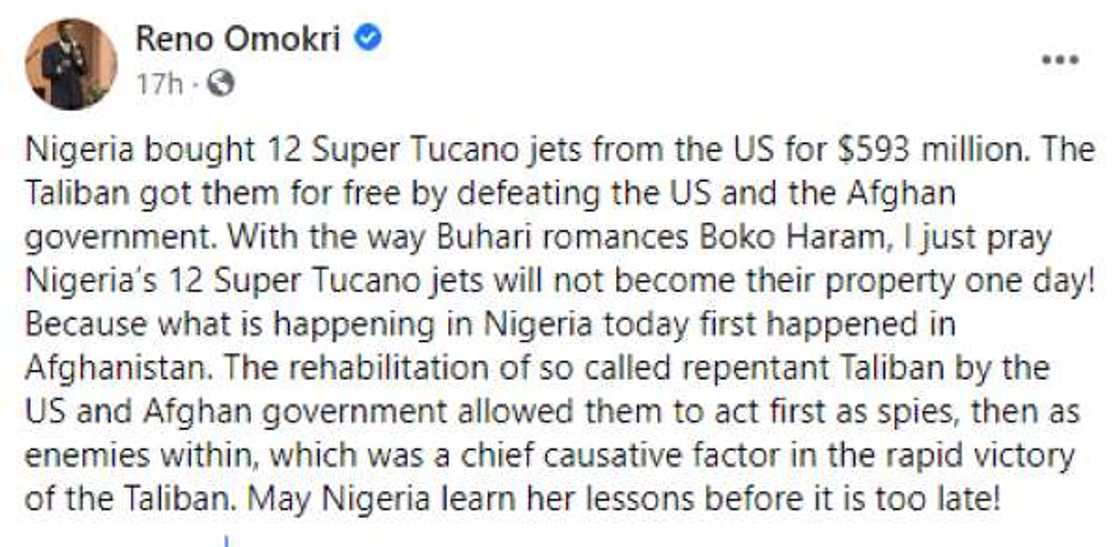
Source: Facebook
What is happening in Afghanistan?
After 20 years of its coalition and presence in Afghanistan with trillions spent in reinforcing the Afghan military operation against the Taliban, the United States withdrew its troops and embassy from the country on Sunday, August 15.
This followed the directive given by President Joe Biden who has been arguing that it is high time the Afghanistan troops faced the reality of their country.
The Taliban declared victory after Afghan president, Ashraf Ghani, fled and his government collapsed amid heightened Taliban invasion.
Kabul, the last major city in Afghanistan, fell to a Taliban offensive that began months ago but accelerated in recent days as the conservative Islamists gained control of more territories.
The city has since become a scene of chaos, with heart-wrenching pictures and videos of Afghans trying to escape the Taliban draconian rule as they struggled to board a US military cargo plane leaving Kabul for Qatar flooding the social media.
Hundreds of Afghans were packed into a US Air Force cargo plane leaving Kabul with 640 people reported to be on board.
Defending his position in a national address on August 10, President Biden argued that the US troops withdrawal was necessitated because “our mission in Afghanistan was never supposed to have been nation-building.”
Defending his position in a national address on August 10, President Biden argued that the US troops withdrawal was necessitated because “our mission in Afghanistan was never supposed to have been nation-building.”
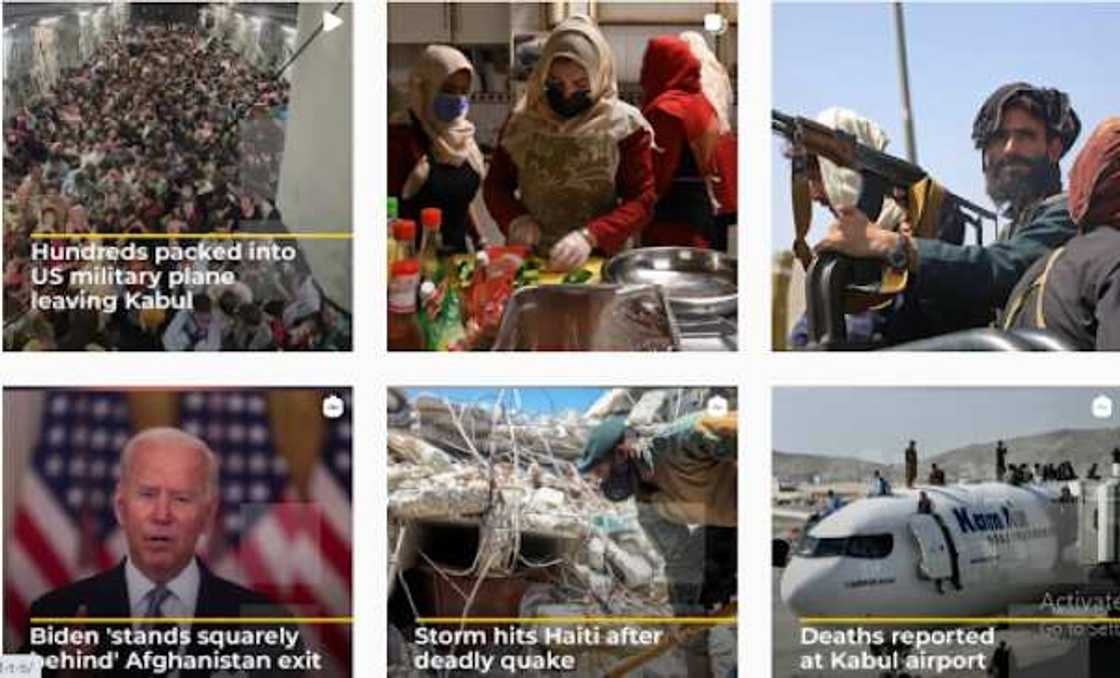
Source: Instagram
Boko Haram: Nigeria’s biggest nightmare after civil war
Boko Haram, officially known as Jamā'at Ahl as-Sunnah lid-Da'wah wa'l-Jihād, began as a dissenting voice in Borno State with the aim of “purifying” and overtaking the Nigerian government like the Taliban in Afghanistan.
Founded in 2002 by its late founder Ustaz Mohammed Yusuf, the history of the Nigerian/African jihadist movement supersedes what has been written so far because a lot of its atrocities in Nigeria and Lake Chad Basin were left unreported.
It would be recalled that after Yusuf’s controversial death in 2009, his vicegerent Abubakar Shekau took over and his reign ended in 2021 after being overpowered by a rival militant group ISWAP.
Shekau’s reign was characterised by terrors in manifolds, with Boko Haram being already responsible for the death of tens of thousands of people in frequent attacks against the police, armed forces and civilians.
The dreaded insurgent group has displaced over 2.3 million from their homes and contributed to regional food crises and abductions including Chibok Girls (Borno) and Dapchi Girls (Yobe)
As a result of its atrocities, Nigeria was ranked number 3 in the 2020 Global Terrorism Index behind Afghanistan and Iran.
Verification
Although the Nigerian government ordered the purchase of twelve Tucano super fighter jets from the United States in an intensified effort against the onslaught of the Boko Haram insurgent group, findings revealed that the fighter jets do not come at the price of $593 million as claimed by Mr Omokri.
Here is the background:
The idea to purchase 12 Tucano jets was strongly conceived in 2018 by the federal government under retired Air Marshal Sadique B. Abubakar when he was the country’s Chief of Air Staff (COAS).
Speaking with journalists on Sunday, January 28, 2019, retired Air Marshal S. B. Abubakar said the President Muhammadu Buhari-led government had “released funds for the purchase of 12 Super Tucano aircrafts from the Government of the United States of America, while another 5 attack/utility helicopters have been ordered from Italy.”
The former chief of air staff also disclosed that “a total of 200 personnel have been receiving training in nine different countries of the world on handling combat aircraft.”
In July 2021, the Nigeria Airforce (NAF) said it had received the first batch of six A-29 Super Tucano aircraft from the United States.
The fighter jets, according to the NAF director of public relations and information for Edward Gabkwet, landed in Kano State where they were received by Minister of Defence Bashir Magashi, the Chief of Army Staff (COAS), Faruk Yahaya and Chief of Air Staff (COAS) Oladayo Amao.
Security experts submitted that the arrival of the super fighter jets would be a game-changer in the fight against insurgency in the country, especially in the northeast.
But at what price were the 12 Tucano super jets ordered?
Findings by Legit.ng established that the fighter jets were purchased at the price of $469.4million. According to Premium Times and International Centre for Investigative Reporting (ICIR), the money was transferred to the US government in 2018.
This clearly contradicts the $593 million figure given by Mr Omokri.
President Buhari had in a letter to the National Assembly (NASS) disclosed that the sum of $496million was withdrawn from the Excess Crude Account (ECA) for the purchase of military aircraft.
Worth mentioning is that the deliberation over the purchase of new super jets was partly responsible for the delay in the passage of the 2018 budget.
Conclusion
Reno Omokri was indeed right that the federal government purchased twelve Tucano super fighter jets to combat insurgency in the northeast. But his claim that $593 million was spent on the jets is wrong and misleading.
Source: Legit.ng



